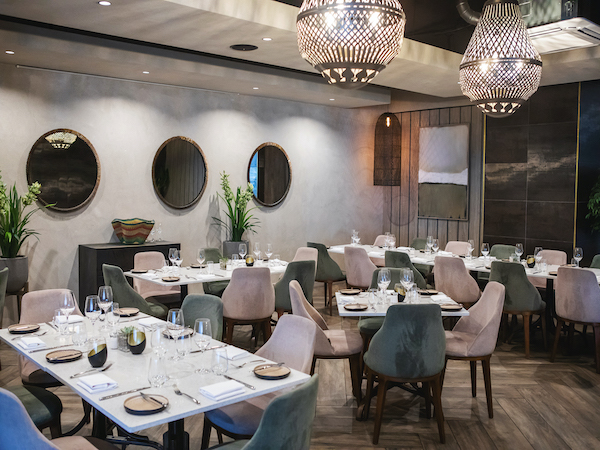News
Sponsored: New funding model can help solve restaurants’ cash-flow challenges
Thursday, March 26th, 2015
Many businesses will have a cash-flow challenge at some point during the year. The need for capital might arise for a grab-with-both-hands opportunity, an unexpected emergency, or just for support to get you through a low trading season. (Great news for Cape Town restaurants facing winter again!)
These peaks and troughs in turnover create the need for flexible funding options, yet the conservative South African banking environment offers only outdated products and onerous business terms – if they offer anything at all. Small business represents 50% of South Africa’s GDP and 65% of formal employment, yet many of these businesses struggle to get access to bank loans.
To address this need for flexible alternative solutions, Retail Capital launched a funding model based on card turnover that has enjoyed much success in USA, Europe and Asia. With what they call their business cash advance, Retail Capital has advanced over R400m to thousands of South African businesses since January 2011.
Who can use the business cash advance?

Any business that accepts credit or debit cards as form of payments is eligible, but, according to Retail Capital CEO David Lewis, customers are generally from three main areas: retail; restaurants and hospitality; and the beauty and wellness industries.
He explains, “The kind of person who owns a restaurant or sets up a shop is passionate about their business, but they’re not necessarily structured financiers or chartered accountants – sometimes they need access to cash relatively quickly. A restaurant owner might wake up on a sunny day and decide, ‘We really need a deck here’ and this is an example of where we can help,” explains David.
Retail Capital lists among its restaurant clients Ocean Basket, Steers, Nando’s, Simply Asia, Debonairs, Subway and News Café. (See more customers here.)
How does the advance work?

“First, we look at the trading history of business in terms of card turnover – how they’ve done over the last six or 12 months – to see how much they qualify for,” explains David. “We can then agree an advance figure. Next, we determine the full amount that will be paid, and an affordable fixed percentage of daily card turnover that can be paid over to Retail Capital.”
Once accepted, the advance is paid into the client’s bank account for them to use in any way they like, and on each trading day the agreed percentage of card turnover is paid over to Retail Capital until the full amount is reached.
“Most clients then decide to re-advance with us. We’ve almost become the new overdraft facility,” says David.
How is it different to what banks offer?

In a survey of over 20 000 businesses conducted by Retail Capital, more than half of the respondents said that the biggest business challenge that they faced was access to working capital.
“People also wanted flexibility, and complained that banking processes take too long and are too complicated – almost a third had already been denied business loans by the banks, who weren’t prepared to help,” reveals David.
Banks look to minimise the risk of any loss scenario and try to maximise the chances of total repayment. They limit what the cash can be used for, ask for security in the form of assets they can liquidate, charge many penalties and fees, and it can take up to 12 weeks for anything to be signed and sealed. This limits the number of businesses that can qualify.
On the other hand, the business cash advance model does not require security or guarantees up-front, allows the client to spend the money any way they like, links the repayment to a percentage of turnover, fixes all costs up front, and usually takes only 10 days from application to funding.
Retail Capital stands in partnership with its clients, with the key objective of keeping a business in business and helping it to grow. “We win together or lose together,” says David. There are, however, some “good faith” conditions, for example, that clients must continue to accept card payments and conduct business as they have done so in the past. “We only get paid as long as the business stays in business, so we look at ways to help ensure that.”
Will it work for me?
According to David, any business should only take funding if one of the following scenarios applies:
• You can use the money to make more money in the longer term; or
• The consequences of not doing so will cost more than the advance in the longer term.
“If you’re seeking funds because you’re in survival mode, then taking funding may exacerbate problems in the longer term, unless you fix the inherent cause,” he warns.
How can my restaurant get involved?

First and foremost, your restaurant needs to accept cards. Retail Capital will send someone to meet you at your premises and ask to see basic paperwork, such as the history of card turnover, bank statements and some references. Within 10 days, you’ll know whether or not they’ve agreed to offer you an advance, but chances are good: “We approve 80% of applications,” says David. “We started with the vision to be the alternative funder of choice. Now we’ve realised we’re not merely a finance provider; were a proud supporter of SA small businesses and a creator of jobs. It’s all about the businesses and the people that we help, not the product.”
Visit www.retailcapital.co.za for more information.












